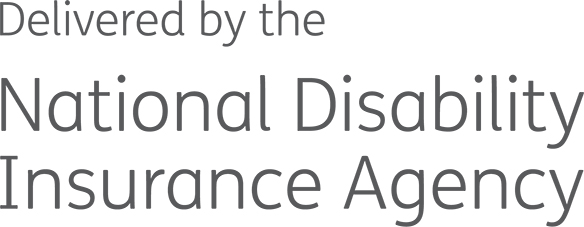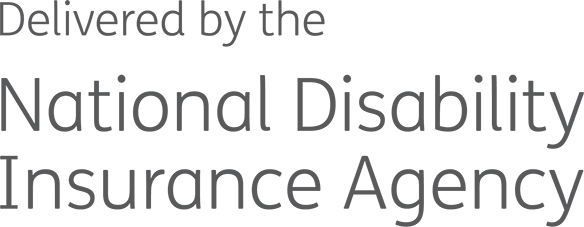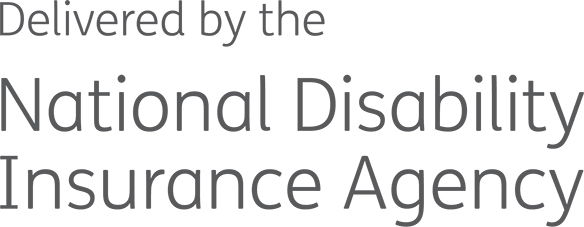
 Our reference:
Our reference: FOI 24/25-0970
GPO Box 700
Canberra ACT 2601
1800 800 110
21 May 2025
ndis.gov.au
Glenn Hamiltonshire
By email: xxxxxxxxxxxxxxxxxxxxxxxxxx@xxxxxxxxxxx.xxx.xx
Dear Glenn Hamiltonshire
Freedom of Information request — Notice of Decision
Thank you for your correspondence of 17 December 2024, seeking access under the
Freedom of Information Act 1982 (FOI Act) to documents held by the National Disability
Insurance Agency (NDIA).
The purpose of this letter is to provide you with a decision on your request.
I apologise for the significant delay in providing you with this decision.
Scope of your request
You have requested access to the following documents:
“…Freedom of Information Request for the purposes of the Freedom of Information Act
1982.
I request access to the Style Guides/Brand Guides/Writing Guides currently used for the
National Disability Insurance Agency,…”
Processing period
The FOI Act provides 30 calendar days for the processing of an FOI request after it is
received. As your valid FOI request was received on 17 December 2024, the original due
date for your request was 16 January 2025.
1
On 17 December 2024, you also agreed to a 30-day extension of time under section 15AA of
the FOI Act, making 15 February 2025, the new date to provide you with a decision on
access.
We have been experiencing processing delays and were not able to provide you with our
decision by the due date. Consequently, we are deemed to have refused your application
under section 15AC of the FOI Act. I sincerely apologise for the delay in releasing this
decision to you and thank you for your patience while we progressed your application.
We have continued processing your request. In the interests of not causing any further
delays, I have decided not to apply for an extension to the processing period from the Office
of the Australian Information Commissioner (OAIC) under section 15AC of the FOI Act.
Therefore, internal review of this decision is not an option. However, your right to apply for
an external review with the Office of the Australian Information Commissioner remains
protected. Please see
Attachment B for more information about your rights of review.
Decision on access to documents
I am authorised to make decisions under section 23(1) of the FOI Act. My decision on your
request and the reasons for my decision are set out below.
The documents were identified by consulting with relevant staff in NDIA’s Strategic
Communications Division who conducted searches of NDIA’s systems, using all reasonable
search terms to identify documents relevant to the scope of this request.
Upon review, I have identified 2 documents that fall within the scope of your request.
I have decided to:
grant access to Document 2 in full and
grant access to Document 1 in part.
In reaching my decision, I took the following into account:
your correspondence outlining the scope of your request
the nature and content of the documents falling within the scope of your request
the FOI Act
the FOI Guidelines published under section 93A of the FOI Act
consultation with relevant NDIA staff
2
factors relevant to my assessment of whether or not disclosure would be in the public
interest and
the NDIA’s operating environment and functions.
The FOI Act states that, in making a decision on a request, I must consider the FOI
Guidelines issued by the Information Commissioner pursuant to section 93A of the FOI Act.
According to the FOI Guidelines, the FOI Act serves as the legislative foundation for open
government, facilitating and promoting public access to information. I believe that providing
access to these documents aligns with the objects of the FOI Act, such as fostering better-
informed decision-making and enhancing analysis, discussion, commentary, and review of
information held by the government.
Please note, the Strategic Communications Team has advised that certain information in
Document 1, i.e., NDIS Brand Guidelines March 2022, including the content on page 19, is
now outdated.
Strategic Communications Team has further advised that the NDIA also complies with the
Australian Government Style Manual, which provides comprehensive guidance on writing for
government communications. The NDIA references this manual as a supporting resource to
complement the advice outlined in its internal writing guidelines. While the NDIA does not
hold an internal copy of this manual, it is available through a publicly accessible website.
You can access it via the following link:
The Australian Government Style Manual
Access to edited copies with exempt or irrelevant material deleted (section 22)
On 12 May 2025, we contacted you via email to advise that certain images/photographs of
individuals contained in one of the documents within the scope of this request were originally
obtained with consent for limited internal use by the Agency, such as for training purposes.
As such, some of these images are not available for external release due to privacy
considerations. Accordingly, we sought your confirmation on whether you are agreeable to
these images being excluded from release as irrelevant under section 22 of the FOI Act.
On 14 May 2025, you confirmed your agreement to the redaction of these
images/photographs in accordance with section 22 of the FOI Act.
I have decided that Document 1 contains material that is exempt from disclosure under the
FOI Act.
3
I have also identified that Document 1 contains material that is irrelevant to your request.
The irrelevant material relates to images/photographs of individuals that are not available for
external release due to privacy considerations. Accordingly, these images have being
excluded from release as information that is not relevant to the subject matter of your
request.
In accordance with section 22 of the FOI Act, I have considered whether it is possible to
delete the exempt and irrelevant material from the document and have concluded that it is
reasonably practicable to do so. Accordingly, I have prepared an edited copy of this
document with the exempt and irrelevant material removed.
Reasons for decision
Certain operations of agencies (section 47E(d))
Section 47E(d) of the FOI Act conditionally exempts a document if its disclosure would, or
could reasonably be expected to, have a substantial adverse effect on the proper and
efficient conduct of the operations of an agency.
Document 1 contains information relating to certain operations of the NDIA, specifically
internal single point of contact (i.e., internal mailbox), intended exclusively for use only by
NDIA staff in their work. These internal mailboxes are not public facing. Emails sent by NDIA
staff to these specialist mailboxes are effectively directed to subject matter experts within
each team, facilitating NDIA's internal operations.
Disclosing internal single points of contact may jeopardise their effectiveness in receiving
feedback and complaints. I am satisfied that, if this information were disclosed, there would
be reasonable likelihood of aggrieved members of the public seeking to gain advantage over
others by using internal points of contact in place of the appropriate points of contact that are
public facing. I conclude that the release of this information could reasonably be expected to
have an adverse effect on the proper and efficient conduct of the operations of the Agency,
namely the Agency’s ability to conduct its operations in a timely and efficient manner.
Accordingly, I find that disclosure of this information would or could reasonably be expected
to have a substantial adverse effect on the operations of the Agency and is therefore
conditionally exempt under section 47E(d) of the FOI Act.
4
 Public interest considerations – section 47E(d)
Public interest considerations – section 47E(d)
Under the FOI Act, I can only refuse to disclose information which is conditionally exempt if I
conclude that it would be contrary to the public interest to do so. Section 11B of the Act sets
out what I need to consider and what I must not consider when reaching my conclusion.
In favour of disclosure, I have considered the factors outlined in section 11B(3) of the FOI
Act, and I have determined that disclosure of the relevant information in Document 1 would
promote the object of the FOI Act by providing access to documents held by the
government.
While there is limited public interest in the disclosure of information conditionally exempt
under section 47E(d), of the FOI Act, the harm that would result from disclosure is that it
could reasonably be expected to prejudice the ability of the Agency to protect established
contact points and procedures of the Agency.
In summary, I am satisfied that the factors against disclosure of the information outweigh the
factors in favour of disclosure and that, on balance, it would be contrary to the public interest
to release this information to you. Accordingly, I have decided that the relevant information in
Document 1 is exempt under section 47E(d) of the FOI Act.
Release of documents
The documents for release, as referred to in the Schedule of Documents at
Attachment A,
are enclosed.
Rights of review
Your rights to seek a review of my decision, or lodge a complaint, are set out at
Attachment B.
Should you have any enquiries concerning this matter, please do not hesitate to contact me
by email at xxx@xxxx.xxx.xx.
Yours sincerely
Ramya (RMO260)
Senior Freedom of Information Officer
Information Release, Privacy and Legal Operations Branch
Reviews and Information Release Division
5
 Attachment A
Schedule of Documents for FOI 24/25-0970
Document
Page
Description
Access Decision
Comments
number
number
Attachment A
Schedule of Documents for FOI 24/25-0970
Document
Page
Description
Access Decision
Comments
number
number
1 1-47
NDIS Brand Guidelines
PARTIAL ACCESS
Irrelevant material removed under
Date: March 2022
Exemption claimed:
section 22 of the FOI Act
s47E(d) – certain operations of agencies
2 48-65
NDIA Plan English Standards Version 3.0
FULL ACCESS
Undated
1
 Attachment B
Your review rights
Attachment B
Your review rights
As this matter was a deemed refusal, internal review of this decision is not an option.
However, if you have concern with any aspect of this decision, please contact the NDIA FOI
team by email xxx@xxxx.xxx.xx or by post:
Freedom of Information Section
Information Release, Privacy and Legal Operations Branch
Reviews and Information Release Division
National Disability Insurance Agency
GPO Box 700
CANBERRA ACT 2601
Review by the Office of the Australian Information Commissioner
The FOI Act gives you the right to apply to the Office of the Australian Information
Commissioner (OAIC) to seek a review of this decision.
If you wish to have the decision reviewed by the OAIC, you may apply for the review, in
writing, or by using the online merits review form available on the OAIC’s website at
www.oaic.gov.au, within 60 days of receipt of this letter.
Applications for review can be lodged with the OAIC in the following ways:
Online:
www.oaic.gov.au
Post:
GPO Box 5218, Sydney NSW 2001
Email:
xxxxxxxxx@xxxx.xxx.xx
Phone:
1300 363 992 (local call charge)
Complaints to the Office of the Australian Information Commissioner or the
Commonwealth Ombudsman
You may complain to either the Commonwealth Ombudsman or the OAIC about actions
taken by the NDIA in relation to your request. The Ombudsman will consult with the OAIC
before investigating a complaint about the handling of an FOI request.
1
Your complaint to the OAIC can be directed to the contact details identified above. Your
complaint to the Ombudsman can be directed to:
Phone:
1300 362 072 (local call charge)
Email:
xxxxxxxxx@xxxxxxxxx.xxx.xx
Your complaint should be in writing and should set out the grounds on which it is considered
that the actions taken in relation to the request should be investigated.
2




